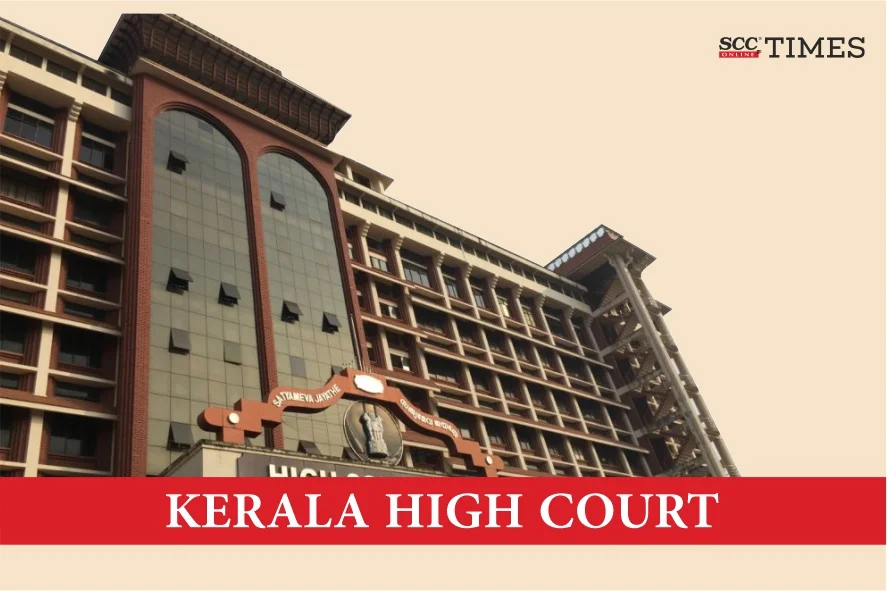Kerala High Court: In a bail application concerning the Puthiyakavu Bhagavathy Temple Fireworks explosion case, C.S. Dias. J, while refusing the bail application, viewed that the accused persons are not entitled to be enlarged on bail, as it would have a deleterious impact on the society and justice would be thwarted. Further, the Court issued a direction for Kerala Legal Service Authority (‘KELSA’) to explore the possibilities of organizing a Adalat for the purpose of redressing the grievances of fireworks explosion aggrieved persons.
Background:
On 12-02-2024, an explosion allegedly caused by the accused at Puthiyakavau -a densely populated township near Tripunithura, Ernakulam, resulting in the loss of two human lives, leaving numerous injured and destroying the hopes of the inhabitants of 321 households and beyond.
On 11-02-2024, the Police while on patrolling duty, found explosives stored in the compound of Puthiyakavu Bhagavathy Temple (‘Temple’) for conducting fireworks. The police enquiry revealed that the organizers had no licence to store the explosives or permission to conduct the fireworks. Thereafter, an FIR was lodged against the President and Secretary of the Temple and ten identifiable persons for the offences punishable under Section 286 of the Penal Code, 1860 (‘IPC’), Section 118 F of the Kerala Police Act and Section 9 (B) (1) (b) of the Explosives Act, 1885. Yet no action was taken against the accused.
Tragically, the next morning another set of explosives, which were meant for the fireworks that evening, stored in a shed and a vehicle, about 2 kilometres from the Temple, exploded, resulting in two fatalities, leaving numerous injured and causing damages to hundreds of dwellings.
The prosecution allegation was that the accused with other co- accused persons, on the instructions of the members of Vadakkumpuram Thalappoli Festival Committee, the Office bearers of Vadakkumpuram Karayogam and the Office bearers of the Temple Devaswom brought raw materials and explosive substances without any licence or permission. The explosives were unloaded and unlawfully stored in a shed. Due to the careless handling of the explosives, the explosion took place resulting in the death of 2 persons, causing grievous injuries to 12 persons, extensive damage to 15 nearby houses, leaving them unfit to dwell, and damage to 300 houses and vehicles parked in the locality.
Issue:
Can a bail application be granted solely on the grounds that the accused is reasonably uninvolved with the offence, or should the probability of the accused tampering with evidence be considered?
Analysis:
The Court noted that after the explosion, that the office bearers of the temple, Karayogams and the committees are attempting to wash away their hands by renouncing their liabilities. The explosion has resulted in the loss of two lives, injuries to many and substantial damage to 321 dwellings. The materials prima facie substantiates the involvement of the accused persons (petitioners)in the crime.
The Court reiterated that merely because the accused persons have undergone a certain period of detention, the same is not a circumstance to enlarge them on bail if the offences are serious. The exceptional power to enlarge an accused on bail under Section 439 CrPC is wide ranging and discretionary and is to be exercised judicially.
Thus, the Court viewed that the accused persons are not entitled to be enlarged on bail, as it would have a deleterious impact on the society and justice would be thwarted.
On visualising the trail of miseries of the hundreds of innocent people, due to illegal action of the infringers of law, with the tolerance of the enforcers, and that the locality is said to be covered by public liability insurance coverage, the Court viewed that matter warrants the emergent intervention of the Kerala Legal Services Authority (KELSA), especially because lives and property of many are in peril. Therefore, it directed KELSA to explore the possibility of organizing an Adalat and making an endeavour to redress the grievances of the persons affected by the explosion.
[Anil Kumar v. State of Kerala, 2024 SCC OnLine Ker 1568, Order dated- 02-04-2024]
Advocates who appeared in this case :
For the Petitioner: Advocate R. Anil, Advocate B. Raman Pillai (SR.), Advocate Ieans. C. Chamakkala, Advocate Sujesh Menon V.B., Advocate Thomas Sabu Vadakekut, Advocate Mahesh Bhanu S., Advocate Ressil Lonan, Advocate Ananth Krishna K.S.
For the Respondents: Public Prosecutor Neema T.V







